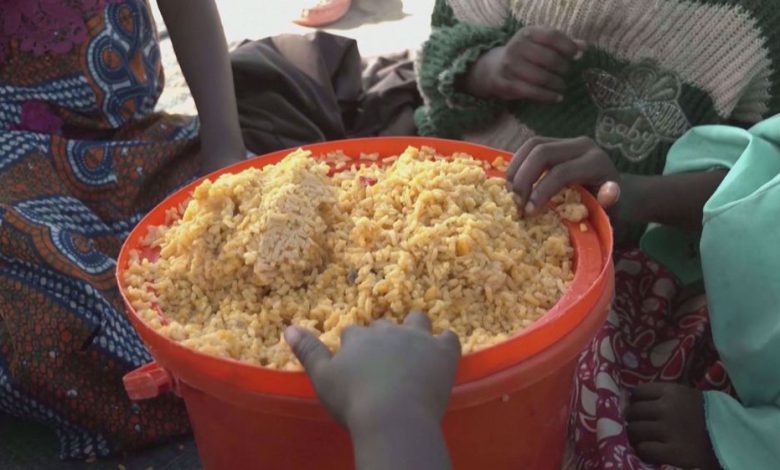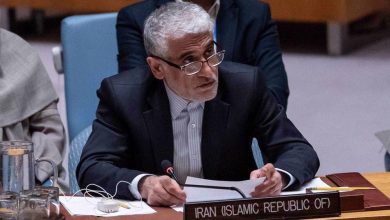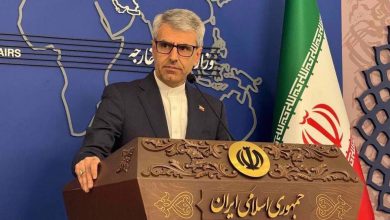Millions of Nigerians face intensified food insecurity as flooding exacerbates existing challenges
Nigerians in the northeastern Borno State face significant challenges in providing for their families, as relentless price hikes and a fierce insurgency exacerbate the difficulties.

In September, the failure of a dam inflicted severe flooding on the state capital and nearby agricultural areas, leaving many residents with no viable alternatives.
Displaced by escalating violence between extremist insurgents and military forces, individuals are now relying on aid distributions at displacement camps. However, when these supplies are depleted, they venture to local farms in search of employment, where they face the peril of attacks by local bandits.
Indo Usman is among the recipients of food aid as she and her family take refuge in a sparse room at Gubio, an incomplete housing development intended for state government employees. This site, located approximately 96 kilometers (60 miles) northwest of Maiduguri, has been repurposed into a makeshift displacement camp.
Usman, who had been striving to rebuild her life by raising livestock for slaughter during Muslim feasts, experienced a major setback as she lost all her animals in the recent flood.
“I have cried so much that my eyes hurt, and I can no longer shed tears due to the circumstances I am facing,” she expressed.
Over the course of several years, she endured multiple episodes of fleeing insurgent attacks in the rural regions of Borno. Now, as she attempted to restore a semblance of normalcy in Maiduguri alongside her husband and their six children, disaster struck again in the form of a devastating flood.
The devastating flood has forced her, her husband, and their six children to seek refuge in a sparse room at Gubio, an incomplete housing project situated approximately 96 kilometers (60 miles) northwest of Maiduguri, which has now been repurposed as a displacement camp.
“We are entirely dependent on the food provided at this location,” she revealed to Reuters. “Due to the lengthy queues, a woman is assisting me by lending her card so I can secure provisions for my children and myself.”
The United Nations’ Food and Agriculture Organization has reported that this year’s severe rainfall and subsequent flooding have ravaged over 1.5 million hectares of farmland across 29 of Nigeria’s 36 states, impacting more than nine million individuals.
Climate change, combined with Nigeria’s inadequate infrastructure, has emerged as a key issue, further exacerbated by the devaluation of the Naira and the recent elimination of a government fuel subsidy.
According to estimates from the World Bank, approximately 40% of Nigeria’s population, which exceeds 200 million, subsists below the international poverty threshold set at $2.15 per individual per day.
A joint analysis conducted by the government and United Nations agencies indicates that 25 million individuals are currently experiencing acute food and nutrition insecurity, placing their lives and livelihoods at immediate risk. Projections suggest that this figure could increase to 33 million by the period of June to August next year.
Trust Mlambo, the World Food Programme’s program head for the northeastern region, informed Reuters that the situation is extremely critical, with multiple crises unfolding simultaneously.
He stated that, in addition to ongoing food insecurity, the region is grappling with conflict and displacement. Furthermore, climate change has exacerbated the situation, resulting in severe devastation from recent flooding.
Zainab Abubakar, an independent tailor leading a modest yet stable life with her husband and six children in a home equipped with modern amenities, including a refrigerator, was abruptly awakened at midnight as floodwaters inundated her bedroom.
Abubakar and her family were forced to evacuate their residence as devastating floods overwhelmed their home, sweeping away all their belongings, including a crucial sewing machine. Currently, they have sought refuge in Gubio, where they rely on aid organizations for sustenance, receiving rice in plastic buckets.
A resident, speaking on the condition of anonymity, reported that while her basic needs have been largely met since her arrival, including access to water and food, she has yet to receive soap.
In the border town of Banki, situated approximately 133 kilometers southeast of Maiduguri on the Nigeria-Cameroon frontier, Mariam Hassan, a mother of eight, has faced severe agricultural setbacks due to recurrent floods. This year, her subsistence farm suffered significant losses as crops of maize, pepper, and okra were decimated, leaving her without food for her family and depriving her of any potential income from sales.
Hassan, a flood victim, recounted the dire circumstances his family is facing, stating, “I once had three meals a day, but now I struggle to eat even once, and some days we go without any food.” He expressed that he and his children are enduring severe hunger following the flood, which has deprived them of their food supplies.
Mlambo has indicated that the international community’s attention has been drawn towards crises in Gaza, Ukraine, and Sudan, resulting in insufficient funding to adequately address Nigeria’s increasing demand for food assistance.
He stated that the focus is being placed on addressing the needs of those most affected by hunger.
As reported by Reuters,







